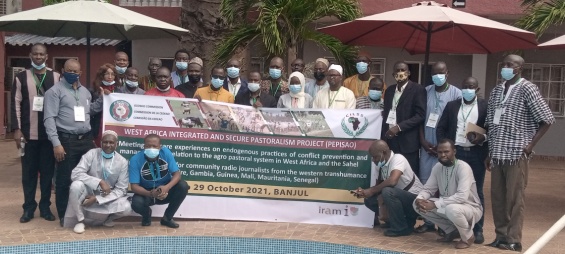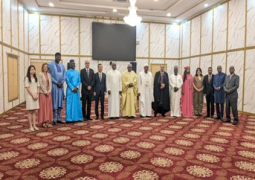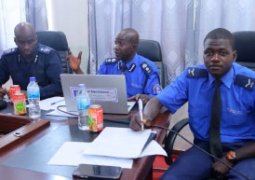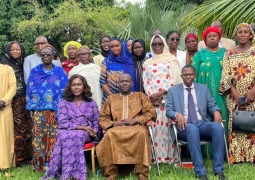
The five days training held at Baobab Hotel in Bijilo, is funded by West Arica Integrated and Secure Pastoralism Project (PEPISAO) and coordinated by CILLS through ECOWAS.
The aim of the training is to equip community radio journalists in Western Corridor for a better understanding of the Agro-pastoral sector and an improved treatment of information on pastoralism, with focus on conflict prevention and management.
The expected outcomes of the training are that, journalists are expected to improve their knowledge and understanding of Agro-pastoral sector and its acts as well as put in place a system for monitoring new productions and monitoring their broadcast.
Speaking on behalf of the Permanent Secretary at Ministry of Agriculture, Ebrima O. Jallow, who doubles as president of the Gambia National Livestock Owners Association (NaLOA), described the training as very vital as it will help the continent to address conflict toward pastoralism. He said journalists have a big role to play in maintenance of peace in the communities.
He said The Gambia is not recording many pastoral problems like other West African countries, where farmers fight each other.
“In Africa, the population is increasing everyday and agriculture activities are taking place and the lands are used for other purposes and this can be one of the reasons that cause conflict in our sub region,” he said.
Mr Jallow commended journalists for promoting peace toward pastoralism in the country and challenged them to do more. He called on Africans to take the responsibility to maintain peace and stability in Africa and not to fight because of land, agriculture or pastoralism, saying governments in our continent, the society, NGOs, media, and even farmers have a role to play.
In his official opening statement, Dr. Bio Goura Soule, representative from ECOWAS, said more dialogue is needed between farmers to reduce 75% of conflict in the pastoral sector, saying “in doing so, journalists have a key role to play especially the community radio journalists.
According to him, for the training to have an impact on the reduction of pastoral conflict, it is important to bring together journalists from community radio stations in cross-border areas that are on the front line in the regions directly concerned, but also journalists from newsrooms in areas that are hostile or indifferent to transhumance.
He said among the specific objectives of the training are to raise awareness of the Agro-pastoral system as key for economic development in West Africa and familiarise journalists with the different concepts or tools of conflict prevention and management in relation to pastoralism.
Dr. Bio noted that familiarising journalists with techniques and approaches for processing and disseminating information from the Agro-pastoral sector is another objective of the day's training.





